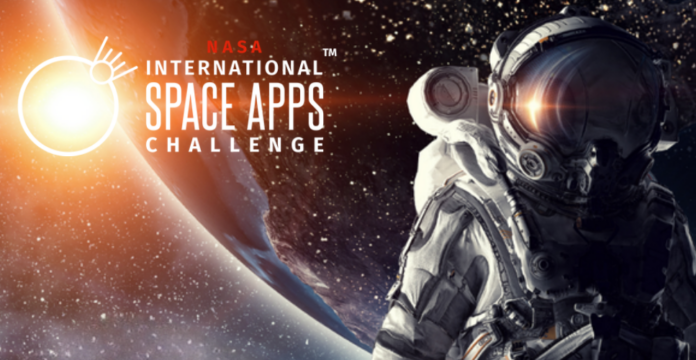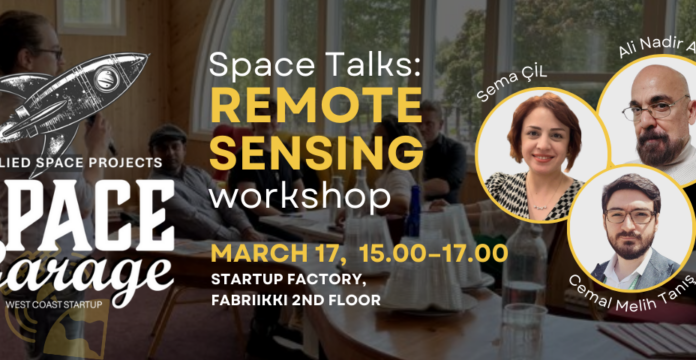Events
monthly profile of what VSA´s space experts are working on
Research Features
Riccardo Notarangelo bridges space & startups 🚀

Helping space-powered ideas take off
In July, our #researchfeatures returns to Riccardo Notarangelo, whose journey from researcher to innovation enabler continues to shape Finland’s space economy. Now supporting European Space Agency (ESA) initiatives like PhiLab and BIC, he helps startups turn their ideas to reality.
“My name is Riccardo Notarangelo. After working as a researcher, I transitioned to an administrative role to pursue my passion for combining startups and the space economy. I am currently a project manager for European Space Agency (ESA) funding instruments in Finland, where I support two key initiatives: PhiLab, which focuses on geospatial R&D projects, and the Business Incubation Center (BIC), which helps young startups in the space economy. These ESA funding instruments support research, innovation, and startup development — through financial support, contacts, and incubation support.
In my role, I manage the activities for both initiatives, and as a result, I work closely with Aalto University in the Helsinki region. A lot of our work involves scouting potential applicants and managing open calls for both. However, we also organize and participate in a wide range of events related to or adjacent to the area of space economy.
Increasingly, we see that there is a need to have disruptive business models and technologies in the space economy. This is part of the encouragement from institutions like ESA to democratize the space sector as well as making it more accessible. My personal angle and passion on this is about finding ways in which we can use space technologies to help push the sustainability of our terrestrial activities. As a result of my own previous research and the cluster here in Vaasa, my knowledge is closely related to Earth Observation technologies and their applications. Nonetheless, I’m curious and love to hear about new innovative cases of space technology applications.”
Sema Çil monitors environment with data & AI

From satellite snow data to deep learning on sea ice
As long, bright days are here and summer is on the horizon, May’s #researchfeatures spotlight Sema Çil, who uses satellite data, deep learning, and real-time observations to advance climate resilience and sustainable environmental monitoring.
“My name is Sema — a name that means “sky” in Turkish — so perhaps it was only natural that I’d be drawn to space. As a Meteorologist and Remote Sensing Specialist, I’ve always been passionate about exploring Earth from above and using satellite data to better understand our changing environment. I am driven by a strong commitment to advancing climate resilience and sustainable resource management through space technologies.
As a Project Researcher at the University of Vaasa, I contribute to the KvarkenData project, focusing on enhancing the use of cross-border environmental data and developing deep learning methods for sea ice monitoring. Specifically, I lead a study on the application of deep learning techniques to segment and monitor sea ice conditions from onboard webcam imagery collected by the Aurora Botnia vessel operating in the Kvarken area. This approach expands the use of camera-based observations for environmental monitoring and complements traditional satellite-based ice detection methods. A key component of the project is the integration of real-time observational data to develop smarter environmental models and strengthen maritime operations. By enhancing real-time marine monitoring capabilities, KvarkenData supports the development of climate-resilient maritime operations and helps communities adapt to changing environmental conditions.
Concurrently, my doctoral research addresses the use of Synthetic Aperture Radar (SAR) data for river ice monitoring to support hydropower management. I have previously contributed to the generation and validation of satellite-derived snow products at the Finnish Meteorological Institute within the EUMETSAT HSAF Project.
My research aims to strengthen scientific understanding and technological capabilities in environmental monitoring, supporting more informed decision-making for climate adaptation strategies. By bridging advances in satellite remote sensing and machine learning, this work contributes to societal resilience, sustainable energy planning, and international environmental cooperation, with direct relevance to Finland, the Arctic region, and global climate efforts.”
Vaiva Stanisauskaite 💚 sustainable future
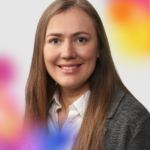
Turning space data into solutions for Earth
With spring in the air, we wrap up March’s #researchfeatures with Vaiva Stanisauskaite, whose work explores how space data can support sustainability and environmental monitoring.
“My name is Vaiva Stanisauskaite and I am a project manager in the University of Vaasa. Space is an inevitable part of my life—not just in the night sky, but also in my work and my home. At home, my two young boys keep me on my toes with their endless curiosity about rockets, planets, and satellites. At the University of Vaasa’s Digital Economy research platform, I have the privilege of collaborating with experts who turn space data into real-world impact.
The projects I am working on focus on leveraging space-based solutions to monitor environmental changes and drive sustainability. In HAVU project, we use GNSS data to pinpoint user locations and plan to integrate satellite data to assess trail conditions—whether they are flooded, covered in snow, or clear to explore. In KvarkenData project, GNSS technology helps track ship locations, while satellite-derived weather data and environmental indicators—such as blue-green algae levels and emissions—offer valuable insights into the Kvarken region’s ecosystem.
Satellite data is also transforming urban planning. By utilizing space technology, city planners can make data-driven decisions that enhance residents’ well-being while ensuring sustainable growth.
For me, space isn’t just about looking to the stars—it’s about turning that knowledge into solutions that benefit life on Earth, and I’m grateful to be part of that mission.”
Kannan Selvan tackles real-world challenges in space
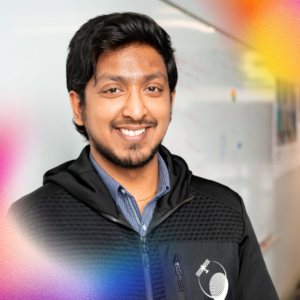
Safer and More Sustainable Space Operations
February brings light and a new #researchfeatures of the month: Kannan Selvan, who became fascinated with space at a young age when having conversations with the cosmos.
“Hello! I am Kannan Selvan, a doctoral researcher at the School of Technology and Innovations at the University of Vaasa. My work revolves around the fascinating realms of low-Earth-orbit positioning, navigation and timing (LEOPNT); satellite communication; global navigation satellite systems (GNSS) technologies; and machine learning.
My journey into the world of space began with software-defined radios (SDR). Using a low-cost SDR to receive NOAA satellite weather images, and ADS-B (Automatic Dependent Surveillance-Broadcast) Mode-S transponder data, which periodically broadcasts airplane location and altitude information. The thrill of catching that faint beacon or telemetry signal from satellites in space never fades — it’s like having a conversation with the cosmos!
Currently, my research is focused on pioneering an alternative technique to determine satellite orbits, moving beyond traditional and hybrid methods. By leveraging orbital datasets and predictive algorithms, I aim to enhance the precision of orbital calculations, minimizing errors that can affect satellite-based services crucial to the modern space era.
This research is not just academically enriching but also vital for tackling real-world challenges in space. With the expansion of space activities and the increasing number of satellites, ensuring sustainability in space, achieving precision positioning of satellites, and mitigating space debris have become critical. My work contributes to the safety and sustainability of space operations, ensuring reliable satellite-based services for navigation, positioning, formation flying, and remote sensing.
As space becomes more accessible, the intersection of artificial intelligence (AI) and satellite technology holds transformative potential. I’m excited to advance satellite positioning technologies, leveraging innovation and research to drive accuracy, sustainability, and seamless integration of space-based systems.”
Resilient Navigation with Elham Ahmadi 🌍

Reliable Navigation in Challenging Environments
New year, new faces in our #researchfeatures! This month, we’re excited to introduce you to Elham Ahmadi and her research.
“I am Elham Ahmadi, a postdoctoral researcher in the school of technology and innovations at the University of Vaasa, Finland, specializing in estimation techniques, multi-sensor fusion, global navigation satellite systems (GNSS), and resilient navigation for autonomous systems.
My research aims to enhance positioning accuracy and resilience in GNSS-challenged environments, such as urban canyons, and under deliberate and/or unintentional interference, including jamming and spoofing. By leveraging extended Kalman filters, factor graph optimization, and reinforcement learning, I develop algorithms that ensure precise and robust navigation even in GNSS-denied or interference-prone environments. By leveraging reinforcement learning to adaptively optimize navigation strategies, my research also supports the development of systems that are not only resilient but also capable of learning and improving performance over time.
This research addresses crucial challenges in modern navigation systems, ensuring precise and reliable positioning for autonomous vehicles and other technologies. It contributes to academia by advancing multi-sensor fusion techniques, offering novel approaches to tackle the vulnerabilities of GNSS in challenging environments and benefits society by enhancing the safety, efficiency, and resilience of navigation systems in real-world scenarios.”
Navigating the Future Sustainably, it´s Petri Välisuo
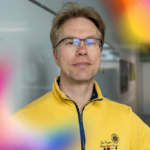
Robust Stats, Smart AI, and Energy Efficiency
Trick or treat! This month’s #researchfeatures with Petri Välisuo!🎃
“My name is Petri Välisuo. I am an Associate professor of sustainable automation. I am interested in researching methods for robust satellite navigation and analyzing other satellite-based data.
I am currently developing methods that combine robust statistics with machine learning to mitigate deliberate and unintentional interferences in satellite navigation. I am also developing a research infrastructure for energy-efficient computing to allow more sustainable AI-based analysis of large data sets, like Earth observations.
This research may provide more trusted satellite navigation for mobile robots, autonomous vehicles, and everyday navigation needs. Combining robust statistics and machine learning may open new research avenues for using similar methods in other state estimation situations. Energy-efficient computing is a central tool for expanding the use of AI for new purposes without causing too much of an increase in energy demands and for adapting to new requirements set by the EU’s energy efficiency directive.”
Morjesta Jaakko Yliaho

One of the Kvarken Space Center’s OG
Closing out this month’s #researchfeatures with Jaakko Yliaho!
“I am an electrical engineer interested in electronics, embedded and distributed systems, RF and accurate time. The technical side of space domain has very often connection to at least some of those fields.
My research interest is related to satellite positioning in general and especially opportunistic positioning using space-based communication signals as an additional source for positioning information. Basically, this means doing positioning and navigation with radio frequency signals that were not designed nor meant for positioning use. This kind of communication signals have in the recent years become popular and the number of satellites transmitting this kind of signals from low-earth orbits is already very high.
Using additional positioning signals to complement Galileo, GPS and other global navigation satellite systems (GNSS) increases the positioning robustness. Users, authorities and the global positioning community are actively working on dealing with the increased amount of interference on GNSS signals. Having available additional positioning technologies, like space-based opportunistic positioning, could provide the users with better trust on always available positioning and navigation.”
Mikko Ranta, making moves 📈

Pioneering the Crossroads of Finance and Space
Mikko Ranta, is an Associate Professor of Accounting with a passion for leveraging satellite data to enhance financial analysis and decision-making, blending his background in astronomy with his expertise in accounting. This interdisciplinary approach has the potential to bridge the gap between space technology and financial analysis, offering new tools for businesses and policymakers to measure environmental impact, assess risks, and make more informed decisions. It not only advances academic knowledge but also provides practical applications that benefit society by promoting transparency and sustainability in business practices.🤝
Mikko, “I’m currently exploring how satellite imagery and remote sensing data can be integrated into accounting and financial models. My research focuses on using these data sources to enhance financial and ESG evaluation and reporting, as well as to improve the accuracy of financial forecasts and risk assessments.🎯 I think satellite data offers a unique and powerful perspective that traditional data sources simply can’t provide, enabling us to uncover insights at a global scale that were previously unattainable. My background in astronomy has given me a deep appreciation for the vast potential of space-based technologies, and I’m excited by the challenge of integrating these cutting-edge tools into financial application, where they can drive innovation, enhance decision-making, and improve reporting.
Satellite data not only advances academic knowledge but also provides practical applications that benefit society. Leveraging satellite data matters because it introduces a new dimension of accuracy and timeliness to financial analysis, allowing for real-time monitoring of global resources, supply chains, and environmental conditions, which are critical for informed decision-making. Thus, EO data can, for example, significantly improve ESG reporting, helping companies and investors to better assess environmental risks and opportunities, leading to more sustainable business practices. 📊 By integrating satellite data into financial models, we can enhance our ability to predict and mitigate financial risks associated with climate change, natural disasters, and other global events, ultimately leading to a more resilient economy. By enhancing the precision of financial analysis, we can promote greater transparency and accountability in corporate practices, which is essential for building trust in markets and institutions. Furthermore, this research has the potential to drive more informed policy decisions, particularly in areas related to environmental regulation and disaster preparedness, by providing accurate, data-driven insights on the state of our planet. Ultimately, the integration of satellite data into financial analysis could contribute to a more equitable and sustainable future, as it empowers stakeholders at all levels to make decisions that are aligned with long-term societal and environmental well-being.”
Summer Spotlight on a Star, Cem Özcan 🌠

The Earth Observation Expert
Our summer edition´s #ResearchFeatures this month is Cem Özcan. Research Features is a monthly update intended to highlight who our near-Earth space experts and researchers are and a brief look into what space research they’re working on and its significance.
As a doctoral researcher and programmer in the Digital Economy Platform at the University of Vaasa, Cem Özcan leverages remote sensing, GIS, and earth observation technologies for environmental monitoring and mapping. His work is closely aligned with the evolving European sustainability rating standards (ESRS) and Environmental, Social, and Governance (ESG) reporting.
Cem’s research focuses on how remote sensing can be effectively utilized within the framework of ongoing and upcoming ESRS and ESG regulations. This approach aims to achieve transparent and robust environmental monitoring, addressing the critical challenge of discrepancies between company-reported environmental values and independently reported environmental scores.
Building upon his expertise, Cem is actively involved in projects such as KvarkenData, Spacecasting, and AuroraSpace. These initiatives demonstrate the practical applications of his research in real-world scenarios, contributing to the advancement of earthobservation technologies and their integration into regulatory frameworks.
Collaborating with institutions across Nordic countries, including partnerships with the Finnish Meteorological Institute (FMI) and counterparts in Norway and Sweden. This cross-border cooperation enhances the scope and impact of his research, fostering a more comprehensive approach to environmental monitoring in the region.
The potential impacts of Cem’s work are far reaching. By developing methods to harmonize remote sensing data with sustainability reporting standards, his research has the potential to significantly improve the accuracy and reliability of environmental assessments. This could lead to more informed decision making in policy, investment, and corporate sustainability strategies.
As the field of environmental monitoring continues to evolve, Cem’s work addresses the pressing need for transparent and verifiable data. His research not only contributes to the academic understanding of remote sensing applications but also has practical implications for industries striving to meet increasingly stringent sustainability requirements.
Konnichiwa Arto Ojala 🤝

The Space Economy Expert
Arto Ojala is a Professor of International Business at the University of Vaasa, Finland, and a Distinguished Visiting Professor at the Graduate School of Management, Kyoto University, Japan. In the space domain, he has specialized particularly in the space business, which involves the commercial and entrepreneurial activities of firms operating in the space industry. As most space firms act globally immediately after establishment, the field is highly international and closely related to his main subject, International Business.
Ojala and his research group’s current research on space business focuses on the internationalization of space firms, business models in the space industry, environmental sustainability based on satellite data, and the usage of artificial intelligence for space-related services. Ojala has close research and teaching cooperation with scholars from Kyoto University. Based on this cooperation, Ojala is publishing an edited book entitled “Space Business: Emerging Theory and Practice” together with Professor William Baber. The book is now in the publication process and will be published by Palgrave Macmillan during this year. Based on the book and empirical findings from the field, Ojala is launching a new course on space business that will bring the latest knowledge of the space industry and business activities within the field for students.
Ojala is actively cooperating with space firms from Finland, Japan, and Spain. Based on research cooperation with them, his research findings provide knowledge related to the internationalization approaches used by the space firms, how space firms successfully innovate and create business models, how satellite data can be used for environmental sustainability and the reduction of greenhouse gases, and how space firms can benefit and provide better services for end-users by using artificial intelligence.
Hello Mahmoud Elsanhoury!
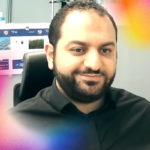
Among the Top 10 Young Scientists from Finland Accepted to Singapore´s Reputed Global Young Scientists 2024 Summit
My name is Mahmoud, I am an Egyptian national working as a doctoral researcher, university teacher, and a research project manager at the University of Vaasa, Finland. I am interested in satellite-based positioning systems, that stemmed from my passion towards space technologies. As a wireless technology researcher, I work closely with satellite-based positioning via global navigation satellite systems (GNSS) and low Earth orbit (LEO) satellite constellations. We utilize computer science tools (e.g. algorithms and sensor fusion) to improve the accuracy and reliability of the various positioning systems. LEO positioning, navigation, and timing (LEO-PNT) is an emerging research topic that gained much potential over the past few years. Both GNSS and LEO-PNT technologies offer a large variety of applications that can be harnessed for location-aware services. In addition, LEO-PNT can be used as an alternative in regions where GNSS signals are impaired, also as an SoS service when needed.
